
Country Dance is a 1970 British drama film directed by J. Lee Thompson and starring Peter O'Toole, Susannah York and Michael Craig. It is based on the novel Household Ghosts (1961) by James Kennaway which became a three-act stage play in 1967. It was released as Brotherly Love in the United States.
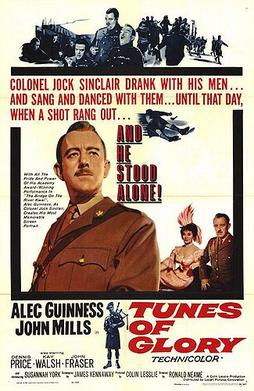
Tunes of Glory is a 1960 British drama film directed by Ronald Neame, starring Alec Guinness and John Mills, featuring Dennis Price, Kay Walsh, John Fraser, Duncan MacRae, Gordon Jackson and Susannah York. It is based on the 1956 novel and screenplay by James Kennaway. The film is a psychological drama focusing on events in a wintry Scottish Highland regimental barracks in the period immediately following the Second World War. Writer Kennaway served with the Gordon Highlanders, and the title refers to the bagpiping that accompanies every important action of the battalion.

Reach for Glory is a 1962 British film directed by Philip Leacock and starring Harry Andrews, Kay Walsh and Michael Anderson Jr. It was adapted by John Rae from his 1961 novel The Custard Boys.
Silence is the lack of audible sound.
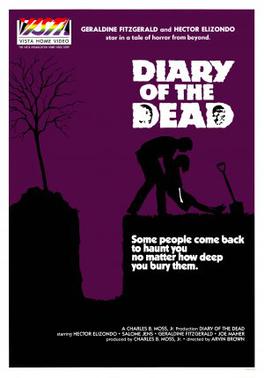
Diary of the Dead is a 1976 neo-noir film directed by Arvin Brown, based on the 1971 novel One Across, Two Down by Ruth Rendell. It was produced by Charles B. Moss. Robert L. Fish, author of Mute Witness, the basis of Bullitt, contributed to the screenplay.
James Peeble Ewing Kennaway was a Scottish novelist and screenwriter. He was born in Auchterarder in Perthshire and attended Glenalmond College.
The Christian is a 1915 British silent film directed by George Loane Tucker and starring Derwent Hall Caine and Elizabeth Risdon. The film is an adaptation of Hall Caine's 1897 novel The Christian. This was the third film of the story, the first The Christian (1911) was made in Australia and the second The Christian (1914) was made in the United States. The Christian was made by the London Film company, which was at the time England's most highly regarded producing organisation and whose policy was to film works of the great authors.
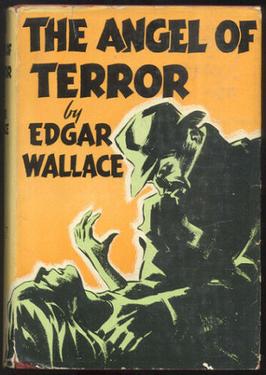
The Angel of Terror is a 1922 crime novel by the British writer Edgar Wallace.

The Strange Countess is a 1925 crime novel by the British writer Edgar Wallace.
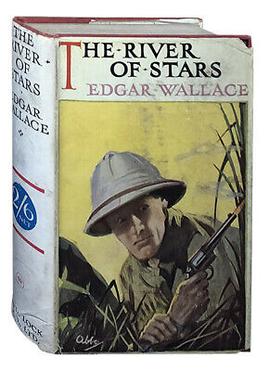
The River of Stars is a 1913 novel by the British writer Edgar Wallace. It was part of a series of stories in which the character of Commissioner Sanders appears, set in British West Africa.

The Gunner is a 1928 crime novel by the British writer Edgar Wallace.

The Man at the Carlton is a 1931 crime novel by the British writer Edgar Wallace.
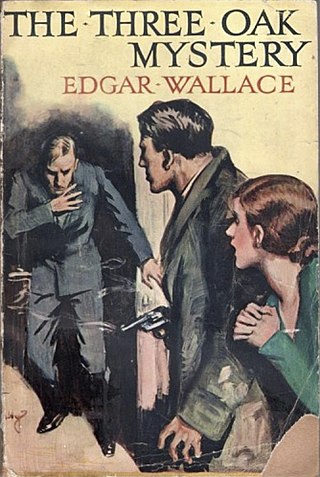
The Three Oak Mystery is a 1924 crime novel by the British writer Edgar Wallace.
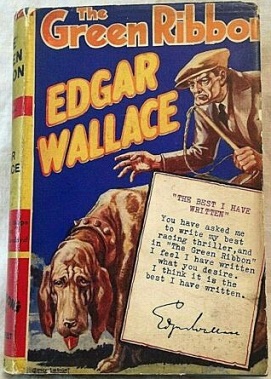
The Green Ribbon is a 1929 crime novel by the British writer Edgar Wallace. Like a number of Wallace's novels it is set against the backdrop of the horseracing world.
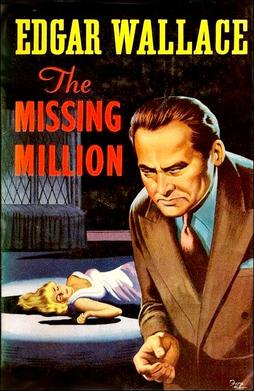
The Missing Million is a 1923 crime novel by the British writer Edgar Wallace.
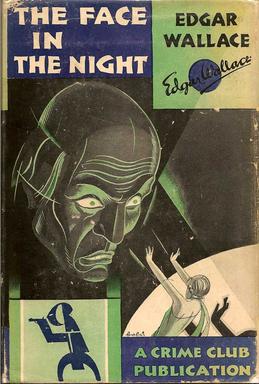
The Face in the Night is a 1924 thriller novel by the British writer Edgar Wallace.
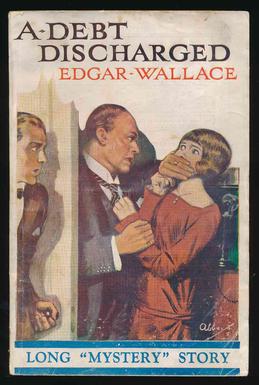
A Debt Discharged is a 1916 thriller novel by Edgar Wallace. An American investigator goes in pursuit of a gang forging money on a large scale.

The Sinister Man is a 1924 thriller novel by the British writer Edgar Wallace.

Household Ghosts is a 1961 novel by the British writer James Kennaway. It portrays the intense relationship between a brother and sister, members of a declining upper-class family in rural Perthshire.

The Glory of Clementina Wing is a 1911 novel by the British writer William John Locke. In the United States it was published under the shorter title The Glory of Clementina.

















